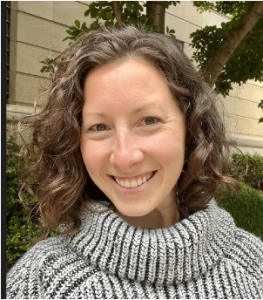
Center for Global Health Placements of GKII Student Travel Grants Announced
We are pleased to announce Austin Schmidt, Rose Pollard Kaptchuk, and Manvi Poddar as the 2023 awardees of GKII’s Girish and Himangi Rishi Student Travel Grant supporting field placement projects with the Johns Hopkins Center for Global Health.
The Girish and Himangi Rishi Student Travel Grant is designed to support student travel to India, leveraging the strengths of existing Johns Hopkins University research programs. Mr. Rishi, an alumnus of the School of Advanced International Studies (SAIS), is an accomplished tech executive, now CEO of the industrial software company Cognite. He and his wife, Himangi Rishi, established the fellowships with GKII to connect their passion for business and technology with the challenges of urban hunger, sustainable diets, and health inequity.
 Austin Schmidt
Austin Schmidt
Master of Science in Public Health – Health Studies
Theme: Health Systems
Project: India Primary Health Care Support Initiative
Austin will primarily be working on the demonstration pillar of IPSI’s work. This pillar focuses on design and implementation support for selected states to help improve PHC coverage and performance.
Her work will include finalizing partner workplans, developing milestones and deliverables for the local partners, and visiting some of the sites to better understand the PHC context in India. She will also work on the implementation research portion of the project by developing study designs and tools and contributing to manuscripts with my team.
Some of the key deliverables Austin will produce include workplans, timelines, manuscripts, and tool development.
“I am really looking forward to completing my practicum this summer at the India Primary Health Care Support Initiative (IPSI) in Delhi. Through my work, I will assist in implementation research of primary health care and work with local partners to develop workplans. I am hoping to draw on my practicum experience at IPSI for my MSPH capstone paper & presentation.”
 Rose Pollard Kaptchuk
Rose Pollard Kaptchuk
PhD, Johns Hopkins Bloomberg School of Public Health, Department of International Health
Theme: Social Behavioral Interventions
Project: PWID opportunities to Improve, Treat & Retain
The POINTER trial is evaluating the impact of same-day ART (vs. standard ART) and community-based ART (vs. government ART) on HIV viral suppression among people who inject drugs.
Rose will work with the study team to implement a mixed-methods assessment to evaluate barriers and facilitators of the POINTER trial. This will involve finalizing the evaluation tools and planned methodology through visits to study sites and discussion with the study teams. Rose will collaborate with the in-country interviewer to recruit respondents, monitor data collection, and conduct ongoing analysis of the interview data through an iterative approach.
“I’m so excited for the opportunity to work with the POINTER trial team on an implementation assessment. I hope this work can elevate community perspectives and help services in India better support people who inject drugs to manage HIV and promote wellbeing.”
 Manvi Poddar
Manvi Poddar
Master of Science in Public Health (MSPH) in International Health
Theme: Social Behavioral Interventions
Project: Formative Assessment for Peer-Led Mental Health and TB Services Integration in India
Long-term goal of this study is to enhance tuberculosis treatment programs by expanding access to mental health services in India with an integration approach that is informed and led by people with lived experience of both tuberculosis and mental health conditions.
The objective is to collaborate with people with lived experience, alongside other stakeholders at the intersection of tuberculosis and mental health, to identify the key characteristics of a peer-led tuberculosis-mental health integration model for India. The central hypothesis is that the resulting model will demonstrate effectiveness, cost-effectiveness, acceptability, feasibility, and sustainability for use by India’s TB programs.
“I will be conducting qualitative key informant interviews with Tuberculosis (TB) survivors with lived experience of mental health conditions alongside their family members and healthcare providers, and supporting data cleaning and analysis, to design a peer-led TB-mental health integration model for India.”